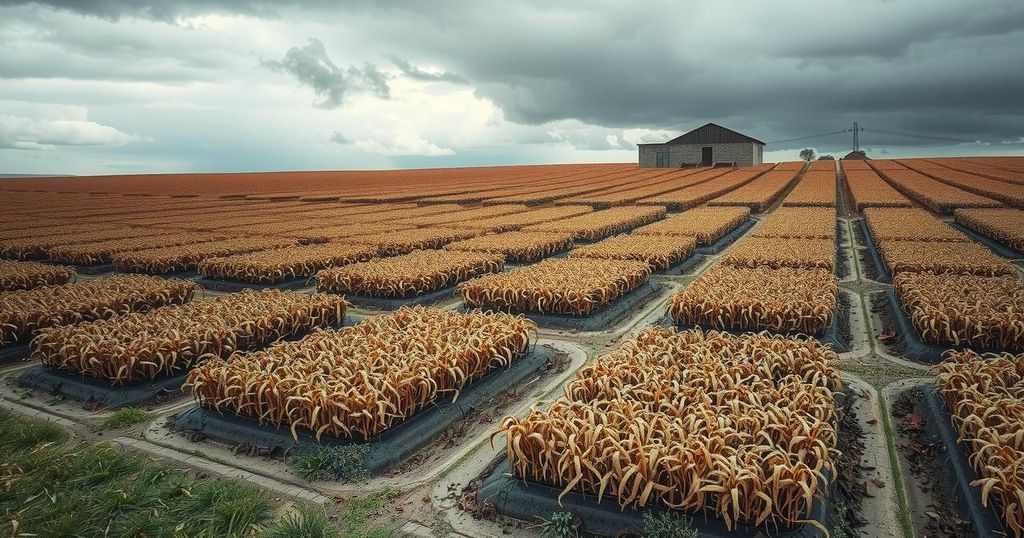Research indicates that rising atmospheric CO₂ levels enhance crop growth but reduce nutrient content, jeopardizing food security. Key crops like rice, corn, and wheat exhibit decreased nitrogen and mineral levels, risking increased malnutrition globally. Solutions like nature-based interventions are required to counter these effects.
Recent studies indicate that rising atmospheric carbon dioxide (CO₂) levels significantly impact global food crops, altering their nutritional profiles and potentially endangering food security. Research published in Engineering reveals that while elevated CO₂ enhances photosynthesis, leading to faster growth rates in staples such as rice, corn, and wheat, it simultaneously reduces nitrogen levels in plants, diminishing their protein and amino acid content. As a result, the nutritional value of these crops declines.
In conclusion, the increase in atmospheric CO₂ poses a dangerous threat to crop nutrition and global food security. The consequential reductions in protein, amino acids, and mineral nutrients could exacerbate health issues, particularly in vulnerable populations. To address this challenge, it is imperative to explore nature-based solutions and further investigate the relationship between climate change and crop biology.
Original Source: cosmosmagazine.com




